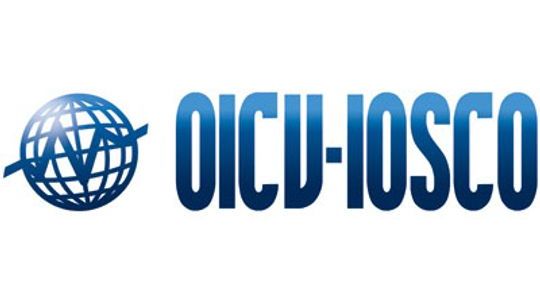Harnessing technology to broaden access to private markets investments
By Thomas Johnston, iCapital Canada
Published: 22 September 2025
Private investor allocations to alternative assets have substantially lagged their institutional counterparts. But today, technology platforms are now streamlining administrative processes and reducing paperwork, thereby enabling the inclusion of a greater number of investors with smaller investment amounts. Additionally, product enhancements, such as more evergreen vehicles with embedded liquidity features, are alleviating many challenges associated with private market investing. These advancements will give access to a new cohort of investors, profoundly affecting the industry.
Alternative investments can offer investors the potential for enhanced returns, greater portfolio diversification benefits, additional income opportunities, and some mitigation of downside risk, depending on the strategies selected and prevailing market conditions. However, these investments may also involve higher risks and less liquidity compared to traditional investments.
Various converging factors are contributing to the increased incorporation of private market assets in client portfolios. Notably, structural changes such as the growth of private markets, a decrease in the number of public companies, companies opting to go public later with higher valuations, and greater diversification within key industry sectors like IT, software, and healthcare - all predominantly controlled by private firms - are significant drivers of this trend. In the US alone for example, 86% of all companies with greater than 100MM in revenue are private.
Source: S&P Capital IQ, iCapital Alternatives Decoded, slide 27, with data based on availability as of February 2023.
All of these factors have helped see alternative assets triple every ten years from 2000. Institutional investor allocations to alternatives have grown to represent over 30% of a typical portfolio. However, despite accounting for over half of total global wealth, allocations within high-net-worth investor (HNWIs) portfolios remain in single digits.1
Banks and wealth managers have historically found the investment minimums for direct investments into funds too high for most investors, while the cumbersome, paper-based subscription process is burdensome to administer. Equally, for fund managers, the marketing, subscription, processing, and servicing required to accept a large volume of smaller investments were beyond their capabilities.
Today, advanced technology has effectively overcome these barriers. Companies such as iCapital2 offer a state-of-the-art platform combined with necessary research, education and pricing efficiency, which have successfully mitigated these challenges. This results in enhanced client experiences and increased efficiencies for wealth and asset managers, leading to improved investment outcomes for their clients.
Three ways technology is bolstering access
Origination and due diligence
Platforms are available today that support origination, access facilitation, and due diligence, helping ensure investors are presented with a shortlist of high-quality managers, while lower investment minimums make alternative investments accessible to a broader range of clients. Automated transaction processing and performance reporting further simplifies the experience.
Profiles and subscriptions
Subscription documents and limited partnership agreements are lengthy and require multiple signatures. Historically, this has required printing, signing, and shipping, and, when multiplied by hundreds of clients, was labour-intensive and prone to error. Today, this can be entirely digitised, enabling scale and minimising errors.
Client servicing
Solutions are available today that offer a centralised repository where advisors can log into a single portal to access documents for all alternative strategies and send them to clients or interested parties within seconds, again, enabling scale for the adviser and ensuring the client is receiving relevant content in a timely manner.
The case for education to unlock private market potential
While technology will continue to spur an increase in demand for the asset class, given the nuances and complexities of private markets investing, these technology solutions must be complemented with high-quality educational material, tailored specifically towards financial advisors and their clients. To illustrate the need for this, a 2023 Bain study asked private investors to name the top three alternative investment management firms. The most popular response: ‘I don’t know’.3 Given the scale of the variance in performance among top and bottom quartile managers in alternatives, it is clear that more needs to be done here.
The speed and sustainability with which private investors increase their allocation to alternatives is directly correlated with the ability of the industry to provide high-quality, accessible educational content.
A call to action: Making alternatives accessible to the private investor
Compelling evidence shows that alternatives positively impact an investor’s portfolio over the long term (and our expectation is for current trends in the market to bolster this use-case). As shown in the chart below, the asset class has historically outperformed and provided diversification benefits across multiple market cycles. Additionally, incorporating alternatives into a portfolio can enhance the risk-return profile, improving returns with lower volatility compared to a portfolio constructed exclusively of public market assets.
Source: Bloomberg Index Services Limited, MSCI, Preqin, iCapital Alternatives Decoded, slide #29, with data based on availability as of Apr. 30, 2025
In addition to the benefits felt by HNWIs investors, if the industry is successful in articulating the benefits of alternatives to private investors and providing them with the necessary tools for well-informed decision-making, the opportunity for wealth and asset management firms is pronounced. Private clients are expected to significantly increase their allocation to alternatives, from US$4 trillion in 2022 to US$13 trillion by 2032. This represents a compound annual growth rate (CAGR) of 12%. In contrast, institutional investors’ allocation is projected to grow from US$22 trillion in 2022 to US$47 trillion by 2032, reflecting an annual growth rate of 8%.4 Technology has removed the barriers. There is now no excuse for the benefits of the asset class not to be accessible to a much broader investor base.
1 Preqin, iCapital Alternatives Decoded, slide #14, with data based on availability as of Apr. 30, 2025.
2 Institutional Capital Network, Inc.
3 Bain Global Private Equity Report 2023.
4 Bain & Company, GlobalData, Preqin Pro, iCapital Alternatives Decoded, slide #22, with data based on availability as of Apr. 30, 2025
IMPORTANT INFORMATION
The material herein has been provided to you by iCapital Network Canada Ltd., which is part of Institutional Capital Network, Inc. (“iCapital Network”) or one of its affiliates (iCapital Network together with its affiliates, “iCapital”). This material is the property of iCapital and may not be shared without the written permission of iCapital. No part of this material may be reproduced in any form or referred to in any other publication without the express written permission of iCapital. This material is provided for informational purposes only and is not intended as and may not be relied on in any manner as, legal, tax or investment advice, a recommendation, or as an offer or solicitation to buy or sell any security, financial product or instrument, or otherwise to participate in any particular trading strategy. Past performance is not indicative of future results. Alternative investments are complex, speculative investment vehicles and are not suitable for all investors. This material does not intend to address the financial objectives, situation, or specific needs of any individual investor. You should consult your personal accounting, tax and legal advisors to understand the implications of any investment specific to your personal financial situation. An alternative investment should only be considered by sophisticated investors who can afford to lose all or a substantial amount of their investment. iCapital operates a platform that makes available financial products to financial professionals and an iCapital entity (including iCapital Network Canada Ltd., a registered investment fund manager, portfolio manager and exempt market dealer in Canada) may serve as general partner, manager or adviser, or perform other services in respect of certain financial products (including alternative investment funds). iCapital generally earns revenue from operating such platforms and providing such services based on the volume of transactions that take place in these products and the amount of assets in such products, and would benefit from an increase in sales of these products. iCapital Network Canada Ltd is currently registered as a portfolio manager in Ontario, Quebec, British Columbia, Alberta, Manitoba, and Newfoundland and Labrador, as an exempt market dealer in each of the provinces and territories of Canada, and as an investment fund manager in Ontario, Quebec, and Newfoundland and Labrador. No securities commission or similar authority in Canada has reviewed or in any way passed upon this document or the merits of the securities described herein, and any representation to the contrary is an offence under applicable Canadian securities laws. Additional information available upon request. “iCapital” and “iCapital Network” are registered trademarks of Institutional Capital Network, Inc. Additional information is available upon request. © 2025 Institutional Capital Network, Inc. All Rights Reserved.





